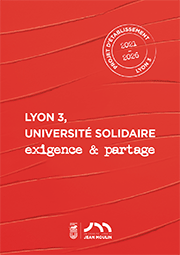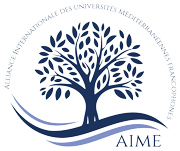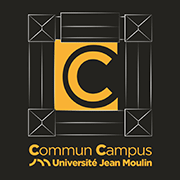AccueilRechercheProgrammes et productions scientifiquesThèsesThèses soutenuesThèses soutenues - 2006-2021Thèses soutenues - 2018
-
Partager cette page
- Recherche,
TRINCAL Stéphanie
Le patrimoine intercommunal
Publié le 10 juillet 2018 – Mis à jour le 13 décembre 2018
Thèse en Droit mention droit public, soutenue le 9 juillet 2018.
Thème souvent oublié des réformes récentes de notre organisation territoriale, le droit patrimonial intercommunal n’est pourtant pas un non-sujet tant les enjeux l’entourant sont essentiels. Essentiels, d’une part, pour l’établissement public de coopération intercommunale et ses membres : exercice optimal des compétences et valorisation des biens sont les principaux défis que permet de relever le droit patrimonial intercommunal. Essentiels, d’autre part, pour l’?tat et le législateur : parvenir à un exercice cohérent des compétences tout en achevant et rationnalisant la carte intercommunale sans se préoccuper des impacts patrimoniaux para?t difficilement réalisable. Nous sommes donc convaincus que le droit patrimonial intercommunal doit devenir un véritable outil stratégique pour l’ensemble des acteurs de la coopération intercommunale. Si nous ajoutons à ces premières observations la circonstance que les règles composant ce que nous dénommons le droit patrimonial intercommunal ont peu changé depuis 1999 alors même que la coopération intercommunale et le contexte législatif dans lequel ses structures évoluent (l’entrée en vigueur du Code Général de la Propriété des Personnes Publiques en étant la parfaite illustration) ont connu de nombreux bouleversements, se pencher sur ce droit quelque peu particulier devient une nécessité.
Albeit oftentimes overlooked in French territorial organization reforms, inter-municipal property law is an essential topic with much at stake for various actors. Firstly, it is essential for inter-municipal cooperation syndicates and their members, for that it allows for the optimal exercise of competences and better use of goods. Secondly, it is essential for the state and the legislator: a coherent exercise of competences along with their rational distribution amongst local authorities can hardly go without considering impacts on property. Consequently, we are convinced that inter-municipal property law is a true strategical instrument for all the actors partaking in cooperation between towns. Additionally, if one considers that the rules that constitute what we call inter-municipal property law have not changed much since 1999, whilst the legal framework in which inter-municipal syndicates are placed has considerably evolved (the entry into force of the General Code for Public Legal Persons’ property being a perfect example), studying this somewhat peculiar field of law appears necessary.
Mots-clés :
?tablissements publics de coopération intercommunale à fiscalité propre – Transfert de compétences - Mise à disposition – Transfert de propriété – Patrimoine – Propriété publique – Gestion domaniale
Keywords :
Inter-municipal cooperation syndicates – Skills Transfer – Provision - Transfer of ownership -Property - Public property - State management.
Directeur(s).trice(s) de thèse : M. Hervé de GAUDEMAR
Membres du jury :
Mme Rozen NOGUELLOU, Professeure des universités, Université Panthéon-Sorbonne Paris 1,
M. Charles-André DUBREUIL, Professeur des universités, Université Clermont Auvergne,
Mme Laetitia JANICOT, Maitre de recherches, F.R.S. FNRS, Université de Liège (Belgique),
Mme Caroline CHAMARD-HEIM, Professeure des universités, Université Jean Moulin Lyon 3,
M. Hervé de GAUDEMAR, Professeur des universités, Université Jean Moulin Lyon 3,
Président.e du jury : Mme Laetitia JANICOT
Equipe d'accueil : ?quipe de droit public
Décision : Admise
Albeit oftentimes overlooked in French territorial organization reforms, inter-municipal property law is an essential topic with much at stake for various actors. Firstly, it is essential for inter-municipal cooperation syndicates and their members, for that it allows for the optimal exercise of competences and better use of goods. Secondly, it is essential for the state and the legislator: a coherent exercise of competences along with their rational distribution amongst local authorities can hardly go without considering impacts on property. Consequently, we are convinced that inter-municipal property law is a true strategical instrument for all the actors partaking in cooperation between towns. Additionally, if one considers that the rules that constitute what we call inter-municipal property law have not changed much since 1999, whilst the legal framework in which inter-municipal syndicates are placed has considerably evolved (the entry into force of the General Code for Public Legal Persons’ property being a perfect example), studying this somewhat peculiar field of law appears necessary.
Mots-clés :
?tablissements publics de coopération intercommunale à fiscalité propre – Transfert de compétences - Mise à disposition – Transfert de propriété – Patrimoine – Propriété publique – Gestion domaniale
Keywords :
Inter-municipal cooperation syndicates – Skills Transfer – Provision - Transfer of ownership -Property - Public property - State management.
Directeur(s).trice(s) de thèse : M. Hervé de GAUDEMAR
Membres du jury :
Mme Rozen NOGUELLOU, Professeure des universités, Université Panthéon-Sorbonne Paris 1,
M. Charles-André DUBREUIL, Professeur des universités, Université Clermont Auvergne,
Mme Laetitia JANICOT, Maitre de recherches, F.R.S. FNRS, Université de Liège (Belgique),
Mme Caroline CHAMARD-HEIM, Professeure des universités, Université Jean Moulin Lyon 3,
M. Hervé de GAUDEMAR, Professeur des universités, Université Jean Moulin Lyon 3,
Président.e du jury : Mme Laetitia JANICOT
Equipe d'accueil : ?quipe de droit public
Décision : Admise
Documentation
Mise à jour : 13 décembre 2018







